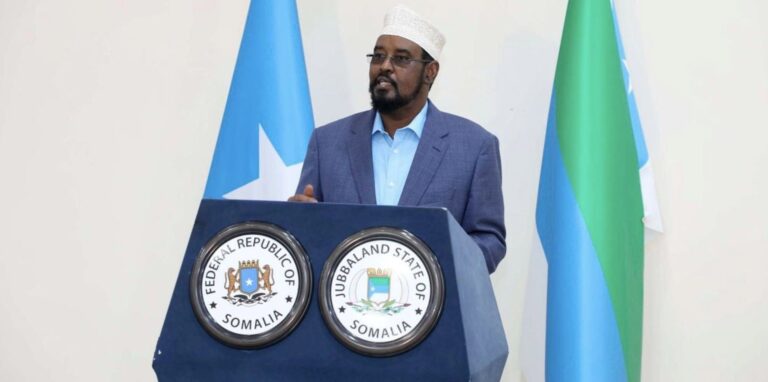Somalia’s federal government has formally requested an Interpol Red Notice to arrest Jubbaland President Ahmed Mohamed Islam, also known as “Madobe.”
The Banadir Regional Court in Mogadishu authorized the request, accusing Madobe of treason, collusion with foreign powers, and actions undermining Somalia’s national unity.
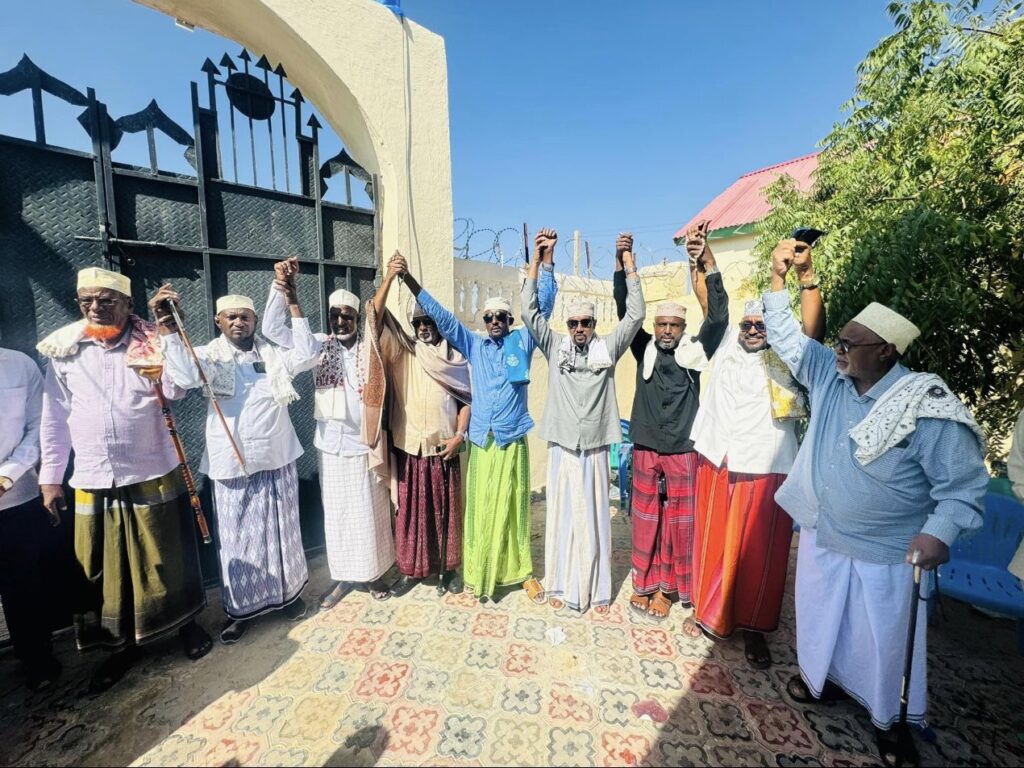
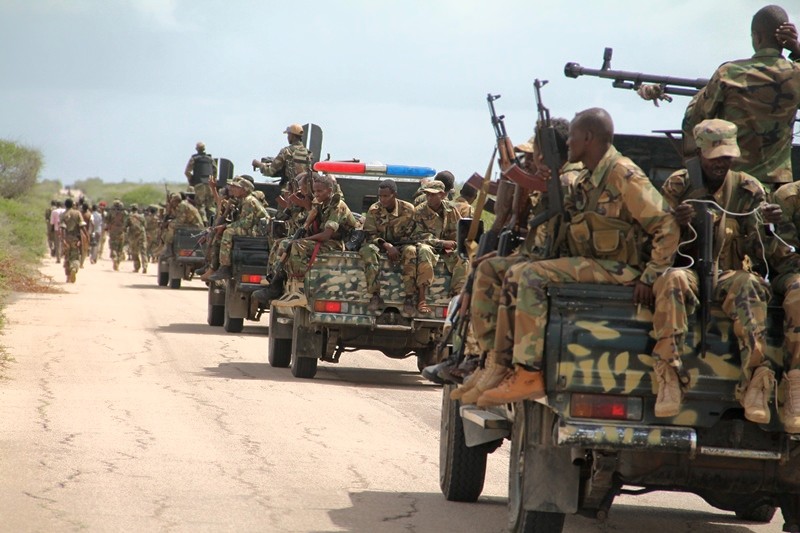
More on this story: Further Jubbaland-Mogadishu confrontation to threaten fight against al Shabaab
This move is the latest chapter in a bitter feud between the Somali federal government and Jubbaland’s semi-autonomous administration. The rift intensified after Madobe withdrew from crucial government consultations last month, throwing Somalia’s already fragile state-building process into further uncertainty. The charges against him signal a deepening divide that threatens to destabilize the country.
An Interpol Red Notice, while not an international arrest warrant, serves as a request to locate and provisionally detain an individual pending extradition. While it relies on cooperation from member states, this international alert can severely restrict Madobe’s ability to travel and engage in diplomatic activities, isolating him from potential international allies.
Somali authorities claim that Madobe collaborated with foreign governments to destabilize the nation, sharing sensitive national security information. Federal officials argue that his actions obstruct Somalia’s efforts to implement much-needed electoral reforms, including the much-debated “one person, one vote” system.
However, Jubaland officials have denounced the charges as politically motivated, accusing Mogadishu of using legal avenues to weaken regional autonomy and power.
The legal clash has triggered a tit-for-tat response, with Jubaland’s First Instance Court issuing an arrest warrant for Somali President Hassan Sheikh Mohamud, accusing him of treason and inciting rebellion. These parallel legal actions underscore the growing tension between Somalia’s central government and the Jubbaland administration.
This as an unprecedented legal conflict in Somalia.
The conflict between Jubaland and Somalia is rooted in a combination of political, historical, ethnic, and strategic factors:
1. Federalism vs. Centralism
- Somalia’s federal system is relatively new and poorly defined, leading to disputes over the division of powers between the federal government in Mogadishu and federal member states like Jubbaland.
- Jubaland, with its own leadership, often seeks greater autonomy, while the Somali federal government aims to assert more control over the region.
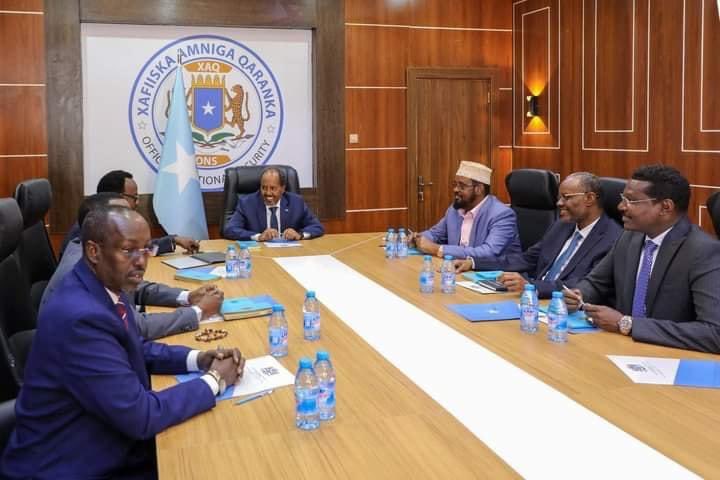
2. Clan Dynamics
- Clan affiliations play a central role in Somali politics. Jubaland is dominated by the Ogaden clan, whose interests often clash with those of other clans supported by the central government.
- The federal government has been accused of favoring certain clans over others, exacerbating existing tensions.
- Geographical Spread: The Ogaden clan predominantly resides in Jubaland (southern Somalia), parts of Ethiopia’s Somali Region (Ogaden region), and northeastern Kenya. This wide distribution has led to disputes over land, grazing rights, and water resources, especially with neighboring Somali clans.
- Economic Resources: In regions like Jubaland, the Ogaden’s dominance in Kismayo and other resource-rich areas creates competition with other clans over control of trade routes, ports, and agricultural lands.
2. Clannism and Political Rivalries
- Dominance in Jubaland: The Ogaden clan’s significant influence in Jubaland, particularly under leaders like Ahmed Madobe, often leads to rivalry with other clans, such as the Marehan and Hawiye, who also seek political representation and control.
- Federal Government Alliances: The Somali federal government has historically supported rival clans to counterbalance the Ogaden’s dominance, intensifying local tensions.
3. Cross-Border Ethnic Identity
- The Ethiopian Ogaden Region: The Ogaden clan has a history of rebellion in Ethiopia, where they fought for self-determination through the Ogaden National Liberation Front (ONLF). This struggle has shaped their identity as a politically active and historically marginalized group, influencing their interactions in Somalia.
- Kenya-Somalia Border Issues: The Ogaden’s presence in northeastern Kenya adds another layer of complexity, as cross-border clan dynamics often involve resource disputes and migration pressures.
4. Historical Grievances
- Marginalization in the Somali Republic: After Somalia gained independence in 1960, the Ogaden clan often felt politically marginalized compared to other major Somali clans, such as the Hawiye and Darod sub-clans.
- Post-1991 Collapse: Following the fall of Siad Barre’s regime, Somalia’s collapse into clan-based fiefdoms exacerbated tensions, with the Ogaden asserting dominance in areas like Jubbaland, creating rivalries with other clans.
5. Tensions with the Marehan Clan
- The Ogaden and Marehan clans, both part of the larger Darod clan family, have longstanding territorial and political disputes, particularly in Jubaland.
- Conflicts often arise over control of administrative positions and resources, as both clans vie for dominance in the region.
6. Role of External Actors
- Kenya’s Influence: Kenya supports the Ogaden-led administration in Jubbaland as a buffer against Al-Shabaab. This external support fuels resentment from other Somali clans and the federal government, who view it as favoritism.
- Ethiopia’s Policies: Ethiopia’s historical suppression of Ogaden activism (the ONLF rebellion) has shaped the clan’s sense of solidarity and resistance, which spills over into Somali clan politics.
7. Al-Shabaab and Security Issues
- The Ogaden clan’s territories, particularly in Jubaland, are frontline regions in the fight against Al-Shabaab. Disputes over who controls security forces and access to international military aid exacerbate clan rivalries.
- Al-Shabaab exploits these divisions by recruiting from marginalized segments of clans, including the Ogaden, to destabilize the region further.
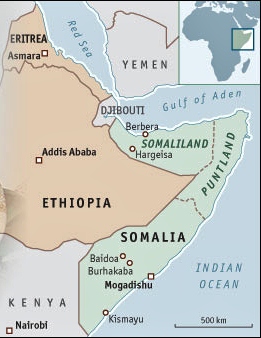
More on this story: Tensions between Ethiopia and Sudan and prospects for this standoff
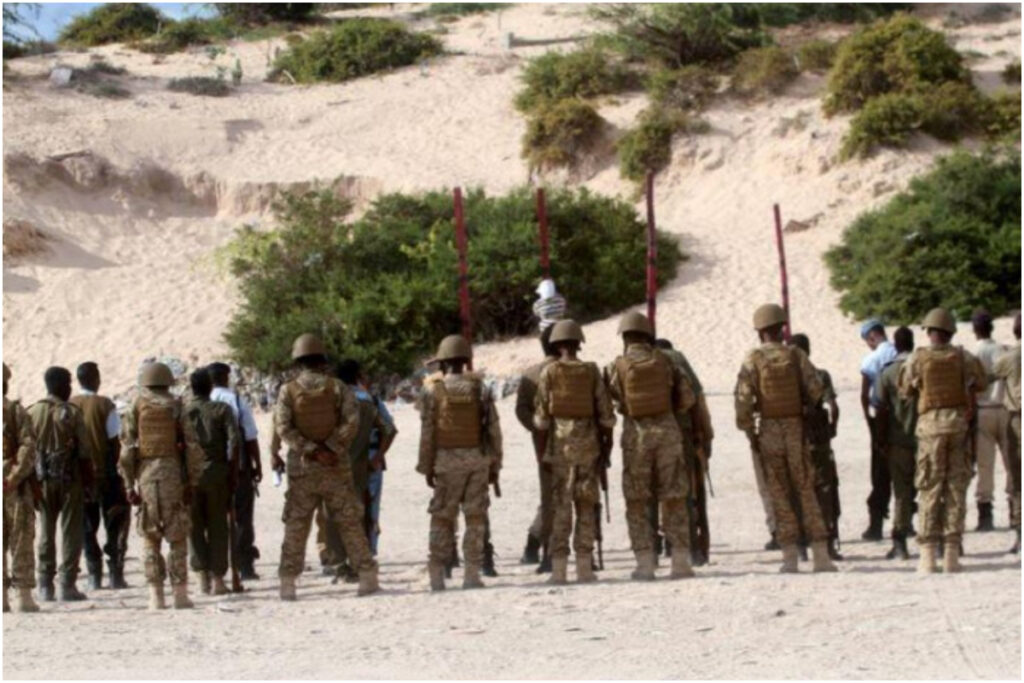
More on this story: Rising insecurity in Somalia increases terrorist risks in the region
8. Leadership and Representation
- Ogaden leaders like Ahmed Madobe have risen to prominent positions, particularly in Jubaland, creating tension with clans who feel underrepresented in regional and federal governments.
- Rival clans accuse the Ogaden of monopolizing power and excluding other groups from decision-making processes.
9. Cultural and Social Factors
- Pastoral Conflicts: As a predominantly pastoralist clan, the Ogaden frequently competes with other clans over grazing lands and water, particularly during periods of drought or resource scarcity.
- Clan Honor and Vendettas: Somali culture places significant emphasis on clan loyalty and revenge for past grievances, perpetuating cycles of violence and mistrust.
10. Weak Federal Institutions
- Somalia’s fragile federal system lacks the capacity to mediate disputes or ensure fair power-sharing among clans. This vacuum leaves the Ogaden clan, like others, to rely on self-help mechanisms, further fueling inter-clan rivalries.
The tribal tensions involving the Ogaden clan in Somalia stem from a mix of territorial disputes, political rivalries, historical marginalization, and external influences.
3. Control of Resources and Economy
- Jubaland includes Kismayo, a major port city crucial for trade and revenue. Control over this economic hub has been a significant point of contention.
- The port’s revenue is a lifeline for Jubaland’s administration, while the federal government wants a share of these resources.
4. Security and the Fight Against Al-Shabaab
- Jubaland is strategically significant in the fight against Al-Shabaab, as it borders Kenya and Ethiopia. Maintaining security in the region is critical for Somalia and its neighbors.
- Disputes over how to manage security forces, including Jubaland’s regional army, have created friction. Jubaland insists on maintaining its forces independently, while Mogadishu advocates for centralized control.
5. Kenya’s Role
- Kenya has significant interests in Jubaland due to its shared border and security concerns. It supports Jubaland’s leader, Ahmed Mohamed Islam (“Madobe”), as a buffer against Al-Shabaab.
- The Somali government perceives Kenya’s involvement as interference in its internal affairs, further straining relations.
6. Election Disputes
- Jubaland’s regional elections have been a recurring flashpoint. The Somali federal government often disputes the legitimacy of these elections, accusing Jubaland of irregularities and favoring leaders not aligned with Mogadishu.
- In turn, Jubaland accuses the federal government of attempting to undermine its autonomy by influencing elections and destabilizing the region.
7. Historical Context
- Jubaland has a history of attempts to assert autonomy, dating back to the collapse of Somalia’s central government in 1991.
- The region’s political identity has been shaped by its struggles for self-governance, which often conflict with Mogadishu’s centralizing tendencies.
8. International Influence
- Beyond Kenya, other international players, including Ethiopia and various Gulf states, have interests in the region, aligning themselves with different factions based on their geopolitical goals.
- These external influences exacerbate internal Somali divisions and make conflict resolution more challenging.
9. Border and Territorial Issues
- Jubaland’s geographical position on Somalia’s southern border, adjacent to Kenya and Ethiopia, makes it a contested and strategically significant region.
- The boundary disputes with neighboring states, including issues related to maritime borders, compound the complexity of the conflict.
Meanwhile, the political crisis has spilt over into military confrontations. Federal forces, including elite units trained by Turkey, have been deployed to strategic locations in Jubaland. At the same time, the region’s troops have also mobilized in response, raising concerns about an impending military standoff.
The growing rift comes as the African Union Transition Mission in Somalia (ATMIS) pulls back, leaving a security vacuum in regions previously patrolled by Kenyan forces. There is a chance that Al-Shabaab militants could exploit the disunity to reclaim lost territory.
The Jubaland regional administration has issued an arrest warrant for Somali President Hassan Sheikh Mohamud, accusing him of treason, conspiracy with Al-Shabaab, abuse of power, and illegal land appropriation.This action by the Kismayo District Court escalates the ongoing political tensions between Somalia’s federal government and the semi-autonomous state of Jubaland.

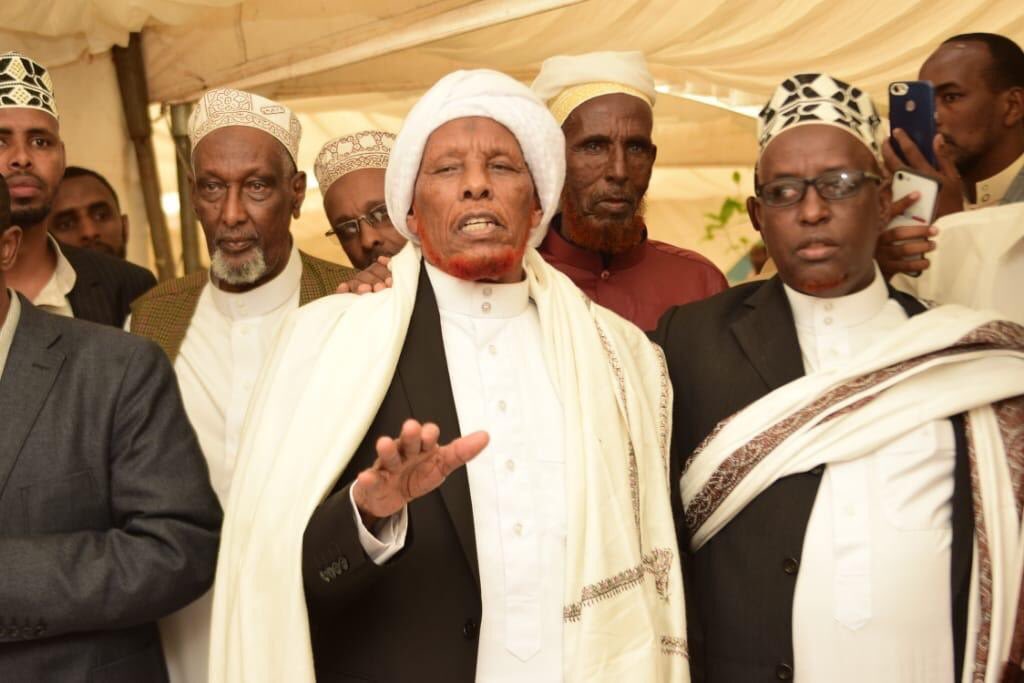
More on this story: Somalian authorities to encourage secession of Northern Kenya


